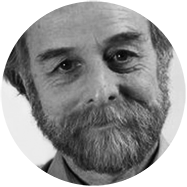 Zoran Popovic is a Professor and Director of Center for Game Science at University of Washington. Trained as a computer scientist his research focus is on creating interactive engaging environments for learning and scientific discovery. His laboratory created Foldit, a biochemistry game that produced three Nature publications in just two years, an a set of award-winning math learning games played by over eight million learners worldwide. He is currently focusing on engaging methods that can rapidly develop experts in arbitrary domains ranging from K-12 to world-class domain experts. His game-based Algebra Challenges conducted in Washington, Minnesota, and Norway, have shown that more than 96% of all children even in elementary school can learn key algebra concepts in just 1.5 hours. His contributions to the field of interactive computer graphics have been recognized by a number of awards including the NSF CAREER Award, Alfred P. Sloan Fellowship and ACM SIGGRAPH Significant New Researcher Award.
Zoran Popovic is a Professor and Director of Center for Game Science at University of Washington. Trained as a computer scientist his research focus is on creating interactive engaging environments for learning and scientific discovery. His laboratory created Foldit, a biochemistry game that produced three Nature publications in just two years, an a set of award-winning math learning games played by over eight million learners worldwide. He is currently focusing on engaging methods that can rapidly develop experts in arbitrary domains ranging from K-12 to world-class domain experts. His game-based Algebra Challenges conducted in Washington, Minnesota, and Norway, have shown that more than 96% of all children even in elementary school can learn key algebra concepts in just 1.5 hours. His contributions to the field of interactive computer graphics have been recognized by a number of awards including the NSF CAREER Award, Alfred P. Sloan Fellowship and ACM SIGGRAPH Significant New Researcher Award.
Category: Bio
Celia Pearce — Northeastern University
 Celia Pearce is a game designer, artist, researcher, teacher and curator. She currently holds a position as an Associate Professor of Game Design at Boston’s Northeastern University. Formerly she worked at Georgia Tech where she ran the Experimental Game Lab and the Emergent Game Group. Her research focuses on play communities and gender and games, and she is the author or co-author of a number of papers and books including Communities of Play (MIT 2009), and Ethnography and Virtual Worlds (co-authored, Princeton University Press.) Her games have been featured at Different Games, Incubate Arcade, DiGRA Blank Arcade, Smithsonian Indie Arcade, CHI, SIGGRAPH, IndieCade Game Tastings, and Boston Festival of Independent Games, where her electronic quilt game eBee (developed with Gillian Smith) received the award for Most Innovative Tabletop Game of 2016. She is also co-founder and Festival Chair of IndieCade.
Celia Pearce is a game designer, artist, researcher, teacher and curator. She currently holds a position as an Associate Professor of Game Design at Boston’s Northeastern University. Formerly she worked at Georgia Tech where she ran the Experimental Game Lab and the Emergent Game Group. Her research focuses on play communities and gender and games, and she is the author or co-author of a number of papers and books including Communities of Play (MIT 2009), and Ethnography and Virtual Worlds (co-authored, Princeton University Press.) Her games have been featured at Different Games, Incubate Arcade, DiGRA Blank Arcade, Smithsonian Indie Arcade, CHI, SIGGRAPH, IndieCade Game Tastings, and Boston Festival of Independent Games, where her electronic quilt game eBee (developed with Gillian Smith) received the award for Most Innovative Tabletop Game of 2016. She is also co-founder and Festival Chair of IndieCade.
Randy Pausch* — Carnegie Mellon University
 Randy Pausch (October 23, 1960 – July 25, 2008) was a professor of computer science, human-computer interaction, and design at Carnegie Mellon University. Randy was a virtual reality pioneer, co-founder of CMU’s Entertainment Technology Center, and creator of the Alice software project. In 2006, Randy learned he had terminal pancreatic cancer and was given 3-6 months to live. He is widely known for “The Last Lecture”, a lecture given following a diagnosis of terminal pancreatic cancer. He co-authored a book of the same name, which became a New York Times best-seller.
Randy Pausch (October 23, 1960 – July 25, 2008) was a professor of computer science, human-computer interaction, and design at Carnegie Mellon University. Randy was a virtual reality pioneer, co-founder of CMU’s Entertainment Technology Center, and creator of the Alice software project. In 2006, Randy learned he had terminal pancreatic cancer and was given 3-6 months to live. He is widely known for “The Last Lecture”, a lecture given following a diagnosis of terminal pancreatic cancer. He co-authored a book of the same name, which became a New York Times best-seller.
From 1988-1997 he was an assistant and associate professor in the Department of Computer Science at the University of Virginia in the School of Engineering and Applied Science.
In 1997, Randy became Associate Professor of Computer Science, Human-Computer Interaction, and Design at Carnegie Mellon University. In 1998, he was a co-founder, along with Don Marinelli, of CMU’s Entertainment Technology Center (ETC), and he started the Building Virtual Worlds course at CMU, which he taught for 10 years. He consulted with Google on user interface design and also consulted with PARC, Imagineering, and Media Metrix. He completed sabbaticals at Walt Disney Imagineering and Electronic Arts (EA). Randy received the National Science Foundation Presidential Young Investigator Award and was a Lilly Foundation Teaching Fellow. He was the author or co-author of five books and over 70 articles.
Randy received two awards from ACM in 2007 for his achievements in computing education: the Karl V. Karlstrom Outstanding Educator Award and the ACM Special Interest Group on Computer Science Education Award for Outstanding Contributions to Computer Science Education. He was also inducted as a Fellow of the ACM in 2007.
Randy delivered his “Last Lecture”, titled “Really Achieving Your Childhood Dreams”, at CMU on September 18, 2007. He gave an abridged version of his speech on The Oprah Winfrey Show in October 2007. The talk was modeled after an ongoing series of lectures where top academics are asked to think deeply about what matters to them, and then give a hypothetical “final talk”, with a topic such as “what wisdom would you try to impart to the world if you knew it was your last chance?” Before speaking, Randy received a long standing ovation from a large crowd of over 400 colleagues and students. When he motioned them to sit down, saying, “Make me earn it”, someone in the audience shouted back, “You did!”
CMU president Jared Cohon announced that CMU would celebrate Randy’s impact on the world by building and naming after Randy a raised pedestrian bridge to connect CMU’s new Computer Science building and the Center for the Arts, symbolizing the way Randy linked those two disciplines. The Randy Pausch Memorial Footbridge was dedicated on October 30, 2009, with Jai, Dylan, Logan, and Chloe Pausch cutting the ribbon.
Randy received many high honors for his work and Last Lecture. The Pittsburgh City Council declared November 19, 2007 to be “Dr. Randy Pausch Day”. On May 30, 2008, Randy received a letter from then President George W. Bush thanking him for his commitment to the Nation’s youth. In May 2008, Randy was listed by Time as one of the World’s Top-100 Most Influential People.
* in memorium
Scot Osterweil — MIT
 Scot Osterweil is Creative Director of the Education Arcade and the Game Lab in the MIT Comparative Media Studies Program. He has designed games in both academic and commercial environments. Designs include the acclaimed Zoombinis series (math and logic), Vanished: The MIT/Smithsonian Game (environmental science), Labyrinth (math), Kids Survey Network (data and statistics), Caduceus (medicine), and iCue (history). He is a founder and Creative Director of Learning Games Network (www.learninggamesnetwork.org) where he led the Gates Foundation’s Language Learning Initiative (ESL), and where he designed Quandary, named Game of the Year at the 2013 Games for Change festival.
Scot Osterweil is Creative Director of the Education Arcade and the Game Lab in the MIT Comparative Media Studies Program. He has designed games in both academic and commercial environments. Designs include the acclaimed Zoombinis series (math and logic), Vanished: The MIT/Smithsonian Game (environmental science), Labyrinth (math), Kids Survey Network (data and statistics), Caduceus (medicine), and iCue (history). He is a founder and Creative Director of Learning Games Network (www.learninggamesnetwork.org) where he led the Gates Foundation’s Language Learning Initiative (ESL), and where he designed Quandary, named Game of the Year at the 2013 Games for Change festival.
Janet H. Murray — Georgia Tech
 Janet H. Murray is the author of Hamlet on the Holodeck: The Future of Narrative in Cyberspace (1997; updated edition 2017) and Inventing the Medium: Interaction Design as a Cultural Practice (2011). She taught the world’s first course in interactive narrative at MIT in 1991 and one of the first humanities-based courses in Game Design at Georgia Tech in 2002, where she joined the faculty in 1999 after almost 20 years as a humanist interaction designer at MIT. She is currently Associate Dean for Research in the Ivan Allen College of Liberal Arts at Georgia Tech, and a Professor in the Graduate Program in Digital Media where she is director of the eTV lab which has recently expanded to VR storytelling.
Janet H. Murray is the author of Hamlet on the Holodeck: The Future of Narrative in Cyberspace (1997; updated edition 2017) and Inventing the Medium: Interaction Design as a Cultural Practice (2011). She taught the world’s first course in interactive narrative at MIT in 1991 and one of the first humanities-based courses in Game Design at Georgia Tech in 2002, where she joined the faculty in 1999 after almost 20 years as a humanist interaction designer at MIT. She is currently Associate Dean for Research in the Ivan Allen College of Liberal Arts at Georgia Tech, and a Professor in the Graduate Program in Digital Media where she is director of the eTV lab which has recently expanded to VR storytelling.
Nick Montfort — MIT
 Nick Montfort is professor of digital media at MIT and and director of The Trope Tank, a lab/studio dealing with creative computing. He has developed numerous digital projects, including games, atypical demoscene productions, and several print books of computer-generated poetry. His academic books include one on interactive fiction, one that is a 10-author project about a one-line Commodore 64 program, a co-authored book on the Atari VCS, and a book to teach exploratory programming to artists and humanists. He lives in New York and Boston.
Nick Montfort is professor of digital media at MIT and and director of The Trope Tank, a lab/studio dealing with creative computing. He has developed numerous digital projects, including games, atypical demoscene productions, and several print books of computer-generated poetry. His academic books include one on interactive fiction, one that is a 10-author project about a one-line Commodore 64 program, a co-authored book on the Atari VCS, and a book to teach exploratory programming to artists and humanists. He lives in New York and Boston.
Frans Mäyrä — University of Tampere
 Frans Mäyrä is the Professor of Information Studies and Interactive Media, with specialization in digital culture and game studies in the University of Tampere, Finland. He is the founder and head of University of Tampere Game Research Lab. Frans Mäyrä has studied the relationship of culture and technology from the early nineties and he has specialised in the cultural analysis of technology, particularly on the ambiguous, conflicting and heterogeneous elements in this relationship. He has also served as the founding President of Digital Games Research Association, DiGRA, and published widely on topics that range from games and play to information technologies, science fiction and fantasy. He is recipient of multiple grants and has acted as leader in 45 externally funded games research project and an author of over 160 scientific publications (as of February 2017).’
Frans Mäyrä is the Professor of Information Studies and Interactive Media, with specialization in digital culture and game studies in the University of Tampere, Finland. He is the founder and head of University of Tampere Game Research Lab. Frans Mäyrä has studied the relationship of culture and technology from the early nineties and he has specialised in the cultural analysis of technology, particularly on the ambiguous, conflicting and heterogeneous elements in this relationship. He has also served as the founding President of Digital Games Research Association, DiGRA, and published widely on topics that range from games and play to information technologies, science fiction and fantasy. He is recipient of multiple grants and has acted as leader in 45 externally funded games research project and an author of over 160 scientific publications (as of February 2017).’
 Michael Mateas is recognized internationally as a leader in AI-based interactive entertainment. He is the founding chair of the new Department of Computational Media at UC Santa Cruz, a department which grew out of Computer Science and combines CS, art and design to invent new forms of interactive experiences. He founded and co-directs the Expressive Intelligence Studio, one of the largest technical game research groups in the world and is also the founding director of the Center for Games and Playable Media at UC Santa Cruz. Credits include ‘Prom Week’, a social simulation-based interactive story and puzzle game, and ‘Façade’, the world’s first AI-based interactive drama. Michael has given numerous keynote addresses and paper presentations at conferences worldwide. He received his Ph.D. in Computer Science from Carnegie Mellon University.
Michael Mateas is recognized internationally as a leader in AI-based interactive entertainment. He is the founding chair of the new Department of Computational Media at UC Santa Cruz, a department which grew out of Computer Science and combines CS, art and design to invent new forms of interactive experiences. He founded and co-directs the Expressive Intelligence Studio, one of the largest technical game research groups in the world and is also the founding director of the Center for Games and Playable Media at UC Santa Cruz. Credits include ‘Prom Week’, a social simulation-based interactive story and puzzle game, and ‘Façade’, the world’s first AI-based interactive drama. Michael has given numerous keynote addresses and paper presentations at conferences worldwide. He received his Ph.D. in Computer Science from Carnegie Mellon University.
Colleen Macklin — Parsons School of Design
 Colleen Macklin is a game designer, an Associate Professor in the school of Art, Media and Technology at Parsons The New School for Design and founder and co-director of PETLab (Prototyping Education and Technology Lab), a lab that develops games for experimental learning and social engagement. PETLab projects include disaster preparedness games and sports with the Red Cross, the urban activist game Re:Activism and the physical/fiscal sport Budgetball. PETLab has also published game design curricula for the Boys and Girls Club. She is a member of the game design collective Local No. 12, best known for their social card game, the Metagame. Her work has been shown at Come Out and Play, UCLA Art|Sci Center, The Whitney Museum for American Art and Creative Time.
Colleen Macklin is a game designer, an Associate Professor in the school of Art, Media and Technology at Parsons The New School for Design and founder and co-director of PETLab (Prototyping Education and Technology Lab), a lab that develops games for experimental learning and social engagement. PETLab projects include disaster preparedness games and sports with the Red Cross, the urban activist game Re:Activism and the physical/fiscal sport Budgetball. PETLab has also published game design curricula for the Boys and Girls Club. She is a member of the game design collective Local No. 12, best known for their social card game, the Metagame. Her work has been shown at Come Out and Play, UCLA Art|Sci Center, The Whitney Museum for American Art and Creative Time.
Henry Lowood — Stanford University
 Henry Lowood is curator for history of science & technology collections and film & media collections at Stanford Libraries. After being trained in the history of science and technology and receiving his Ph.D. from UC Berkeley, over a period of more than thirty-five years he has combined interests in history, technological innovation and the history of digital games and simulations to head several long-term projects at Stanford, including How They Got Game: The History and Culture of Interactive Simulations and Videogames in the Stanford Humanities Lab and Stanford Libraries, the Silicon Valley Archives in the Stanford Libraries and the Machinima Archives and Archiving Virtual Worlds collections hosted by the Internet Archive. He led Stanford’s work on game and virtual world preservation in the Preserving Virtual Worlds project funded by the U.S. Library of Congress and the Institute for Museum and Library services and the Game Citation Project also funded by IMLS.
Henry Lowood is curator for history of science & technology collections and film & media collections at Stanford Libraries. After being trained in the history of science and technology and receiving his Ph.D. from UC Berkeley, over a period of more than thirty-five years he has combined interests in history, technological innovation and the history of digital games and simulations to head several long-term projects at Stanford, including How They Got Game: The History and Culture of Interactive Simulations and Videogames in the Stanford Humanities Lab and Stanford Libraries, the Silicon Valley Archives in the Stanford Libraries and the Machinima Archives and Archiving Virtual Worlds collections hosted by the Internet Archive. He led Stanford’s work on game and virtual world preservation in the Preserving Virtual Worlds project funded by the U.S. Library of Congress and the Institute for Museum and Library services and the Game Citation Project also funded by IMLS.
He is also the author of numerous articles and essays on the history of Silicon Valley and the development of digital game technology and culture. With Michael Nitsche, he co-edited The Machinima Reader (2011) and, with Raiford Guins, Debugging Game History: A Critical Lexicon (2016), both for MIT Press. With Guins, he also co-edits the book series, Game Histories, for MIT Press.
